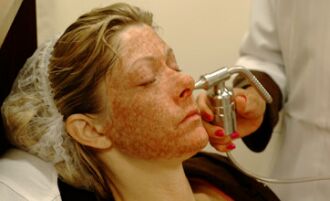Looking to improve your skin? You’re not alone. The global skincare industry was valued at an estimated $141.3 billion in 2019. By 2025, that number is expected to grow to a staggering $180.3 billion! It’s clear that skincare is top of mind for many.
If you’d like to learn more about ways to improve your skin, we’re here to help. Read on for 6 tips for improving your skin.
1. Hydrate, Hydrate, Hydrate

Remember that your skin is the largest organ in your body. Just like the rest of your organs, it needs hydration in order to function.
Water helps your skin with so much more, too. It helps flush your skin of toxins. It improves your skin’s elasticity and prevents premature aging. It may even prevent acne by maintaining the oil and water balance in your skin.
2. Get Plenty of Sleep
Has anyone ever told you that you look tired? Research shows that there may be a direct link between lack of sleep and increased appearance of aging on your skin. That shows up in drooping eyelids and mouth, dark undereye circles, and a more heightened appearance of fine lines and wrinkles.
There are a few factors believed to contribute to this phenomenon, but the most significant is this: during sleep, your body repairs itself. During this time, your body can rebuild collagen to improve skin tightness and repair damage from free radicals.
If you’re having trouble sleeping, explore sleep aid supplements to help you fall asleep for quickly and stay asleep longer. CBD can be a great option; potent, natural CBD tincture can help ease your anxiety and whisk you away to sleep.
3. Never Skip Your Sunscreen

We all know that sunscreen protects us from the sun’s rays, but most of us associate it with long days spent in the full sun. The truth is that we’re susceptible to sun damage at all times—even when it’s cloudy out. That’s why dermatologists recommend wearing at least an SPF 30 everyday. For complete protection, look for a sunscreen that’s broad spectrum. That means it will protect you from both UVA and UVB rays.
4. Moisturize
Do you use a daytime and nighttime moisturizer? You should. Moisturizing is an important step in your skincare routine.
Moisturizers replenish the oils in your skin that keep it supple. It also creates a barrier between your skin and the environment, protecting you from harsh air and free radicals that may cause premature aging.
Have you ever noticed that your skin gets dry and chapped when it’s cold out? When your body gets cold, it starts taking measures to preserve heat. One of the ways it achieves this is by constricting your blood vessels. In doing so, it deprives your skin of a lot of the moisture that it needs. That’s why it’s important to apply extra moisturizer in the winter.
5. Wash Your Face Before Bed

This same layer of buildup clogs your pores and traps sebum, sweat, and dead skin cells in your follicles, resulting in acne. In order to rid your skin of this nasty buildup and prevent breakouts, it’s important to wash your face before bed for perfect skin.
6. Eat with Your Skin in Mind
You are what you eat, and so is your skin. Heavily processed foods aren’t just bad for your physical health, but they’re bad for your skin’s health, too.
This is primarily due to inflammation. Your body holds a perfect balance of good bacteria within it. This is known as your microbiome. When you eat junky or processed foods, you throw off your body’s microbiome. This leads to inflammation. Often, this inflammation shows up in your skin.
Article Submitted By Community Writer




